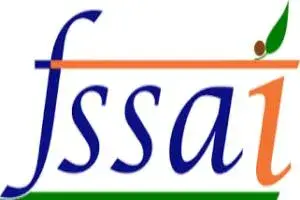The Food Safety and Standard Authority of India (FSSAI) has framed the Food Safety and Standard (Recovery & Distribution of surplus food) Regulation, 2021[1], to promote food donation businesses and reduce wastage in India.
The Rules have been formulated by the FSSAI with the object of establishing uniform national regulations to protect organizations and individuals when they donate food in good faith, these guidelines not only seek to encourage and build culture of food donation in India but also fulfil the sustainable development goals enshrined in the Constitution of India.
As per the Guidelines all the food business operators (FBOs) are required to comply with the Regulations by July 01, 2020. However, the deadline for ensuring compliance was extended upto January 01, 2021 due to the restrictions imposed by the Government in view of the COVID-19 pandemic[2].
KEY HIGHLIGHTS- FOOD DONATION REGULATIONS
- The surplus food distribution organizations are required to follow the food safety and hygiene measures as per Food Safety and Standards (Licensing and Registration of Food Business) Regulations, 2011.
- Maintaining suitable transportation, storage, and reheating facilities for the surplus food distribution organization.
- The surplus food distribution organization serving the food to the needy shall be regulated.
- A proper record of surplus food is required to be maintained.
- Food business operator are required to ensure that the food distributed to any surplus food distribution organization is not unsafe for consumption.
- The labelling requirement with respect to the donate food is dependent on whether the donated food is pre – packed or cooked/prepared food.
ROLE OF THE MONITORING COMMITTEE
In order to ensure compliance with the Regulations, a Monitoring Committee has been formed under the Regulations to monitor and make recommendations for improvement on the operations of the surplus food distribution organizations. The Committee is also required to conduct training programs for food handlers of the food distribution organization on health and hygiene.
To minimize wastage of food, FSSAI can issue guidelines for collections and retrieval of food which is near its expiry date for donation and also specify the time before the expiry at which food shall be segregated for donation. Regulations also provide a list of exhaustive guidelines for handling and distribution of surplus food which every surplus food distribution organization and FBOs are required to follow[3].
CONCLUSION
With the enactment of these regulations, the FSSAI has taken a progressive step towards promoting food donation culture in India. These regulations will go a long way in ensuring that the food donated by FBOs and surplus food distribution organizations are safe for consumption and complies with the food safety standard as set by FSSAI[4].
[1] Food Safety and Standards (Recovery and Distribution of Surplus Food) Regulations, 2019 available at http://extwprlegs1.fao.org/docs/pdf/ind194992.pdf
[2] Extension of timeline for compliance, FSSAI, available at https://fssai.gov.in/upload/advisories/2020/06/5ef589717a4ffLetter_Extension_Timeline_Surplus_Food_26_06_2020.pdf
[3] Schedule 1 of Food Safety and Standards (Recovery and Distribution of surplus food) Regulations, 2019 (Regulations
[4] India’s FSSAI admirably prioritizes food donation – new labels and laws can help, available at https://timesofindia.indiatimes.com/indias-fssai-admirably-prioritises-food-donation-new-labels-and-laws-can-help/articleshow/81875930.cms
Related Posts
FSSAI LICENSE NO. MANDATORY ON RECEIPTS BY RESTAURANTS- FROM OCTOBER 01, 2021
FSSAI- DIRECTIONS TO FACILITATE FOOD BUSINESS DURING COVID-19


